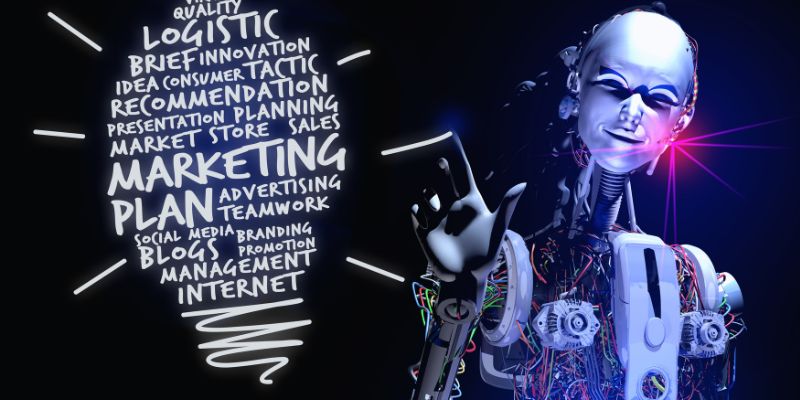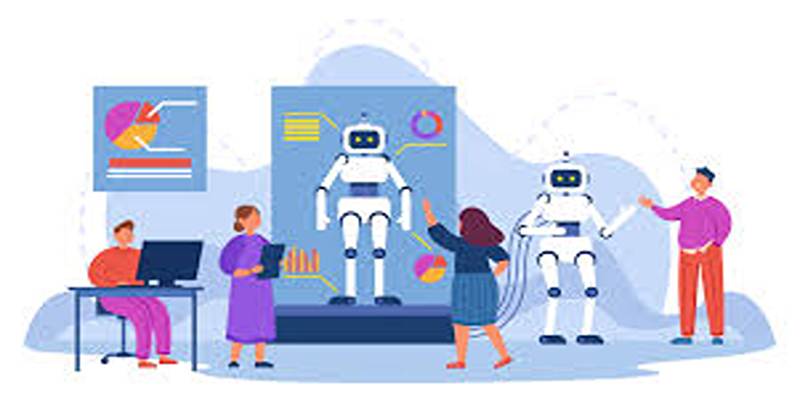Productivity isn't just about working harder anymore; it's also about working better. In order to do this, companies and professionals are using automation and artificial intelligence (AI) more and more. Increasingly, these tools are necessary for businesses to become more productive, avoid doing the same things over and over, and make daily operations run more smoothly.
From managing large data sets to answering customer queries in real time, AI and automation are changing how work gets done. They are not only improving performance but also creating space for creativity, critical thinking, and strategic decision-making.
What Is AI and How Does It Support Productivity?
Computer systems that are programmed to do things that normally require human understanding are called "Artificial Intelligence." These include making choices, learning from mistakes, and spotting trends. In certain situations, AI systems use a huge amount of data and programs to think like humans, often faster and more accurately.
When applied in the workplace, AI helps teams and individuals make smarter decisions, reduce manual errors, and optimize resources. By analyzing large amounts of data, AI tools identify trends and suggest the most effective course of action—saving time and boosting output.
Understanding Automation and Its Role
Automation refers to the use of software, machines, or systems to perform tasks with minimal human involvement. These tasks can range from sending emails to running entire production lines. While automation has existed for decades, its integration with AI has significantly enhanced its capabilities.
AI-powered automation can now learn from past data, adjust to new information, and perform tasks with higher precision. This shift has enabled businesses to automate more complex processes that once required constant human oversight.
The Importance of Productivity in the Modern Workplace

Productivity is the backbone of growth, profitability, and competitive advantage. Whether it's a startup, a large enterprise, or a solo freelancer, being able to produce high-quality work in less time is a common goal.
AI and automation provide the structure to reach this goal by:
- Reducing time spent on repetitive work
- Allowing more focus on strategic activities
- Minimizing errors that can lead to costly delays
By eliminating inefficiencies, these tools empower teams to focus on what truly matters—innovation and value creation.
Practical Applications of AI and Automation
AI and automation tools are not limited to one industry. They are being used across sectors such as healthcare, marketing, finance, education, and manufacturing. Their flexibility allows them to be customized to different roles and business needs. Let’s explore how they help in various areas of productivity.
Automating Repetitive and Time-Consuming Tasks
A large portion of workplace time is spent on tasks that are repetitive and low in value. These include data entry, email responses, report generation, and scheduling. By automating these tasks, employees save hours each week—hours that can be redirected toward higher-impact work.
Examples include:
- Email filtering and sorting: AI tools categorize and prioritize emails for quicker responses.
- Data entry automation: Software bots handle spreadsheets and databases with high accuracy.
- Appointment scheduling: AI assistants book meetings based on calendar availability.
These automations enhance consistency and free up cognitive load.
Improving Decision-Making with AI Insights
AI can analyze thousands of data points in seconds. It enables faster, data-driven decisions that support long-term success. For instance, AI can predict customer behavior, identify risks, and detect patterns that humans may overlook.
Use cases include:
- Marketing teams using AI to segment audiences and personalize campaigns.
- Financial firms use AI to assess investment risks or detect fraud.
- Retail businesses track purchase patterns to manage inventory.
Enhancing Customer Experience Through Automation
Businesses today operate in a customer-first environment. AI and automation help deliver quick, consistent, and personalized customer service. AI chatbots and virtual assistants handle multiple customer queries at once. They are available 24/7, reducing wait times and boosting satisfaction.
Common tasks managed by AI in customer support:
- Providing order updates
- Answering product-related questions
- Troubleshooting common issues
- Booking services or appointments
It allows human agents to handle complex cases while routine interactions are automated efficiently.
Promoting Better Team Collaboration
Remote and hybrid work models have increased the need for effective collaboration. AI tools help teams stay connected and aligned through smart task management, automated updates, and real-time communication. Platforms like Notion, Trello, or Slack use AI features to track deadlines, assign tasks, and send notifications—ensuring smoother collaboration.
Key collaboration benefits:
- Fewer missed deadlines
- Improved team accountability
- Clearer communication through automated updates
By keeping everyone on the same page, these tools reduce friction and encourage consistent progress.
Streamlining Personal Task Management
AI is not just for businesses. Individuals can benefit from productivity tools that assist with personal organization.
Personal automation can include:
- Email sorting with AI filters
- Automatic to-do list creation
- Voice assistants scheduling events
- Apps analyzing time spent on tasks
These solutions help individuals build better habits and stay focused throughout the day.
Examples of Popular AI and Automation Tools

Some widely-used tools making a big impact on productivity include:
- Grammarly: Helps improve writing using real-time AI suggestions
- Zapier: Connects different apps to automate workflows
- Asana: Offers task automation for team projects
- Google Calendar: Uses AI to suggest optimal meeting times
- Trello Automation: Adds rules and triggers to boards to reduce manual steps
These tools require minimal setup and are user-friendly even for non-technical users.
Conclusion
AI and automation are changing the way people work by making processes faster, smarter, and more efficient. These technologies reduce the time spent on repetitive tasks and help minimize human error. They also support better decision-making through accurate data analysis, allowing teams to focus on meaningful work. From improving customer service to streamlining personal task management, their impact is wide and practical. While challenges like cost and data privacy need attention, the overall benefits are hard to ignore. Businesses that adopt these tools gain a competitive edge and save valuable time.










